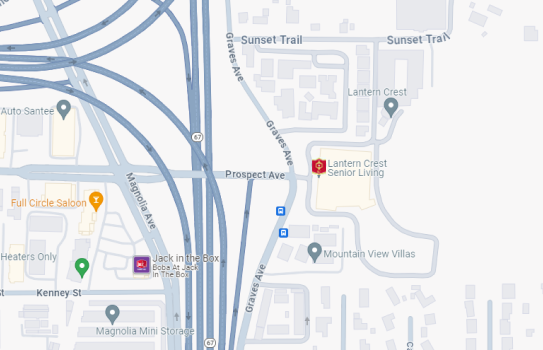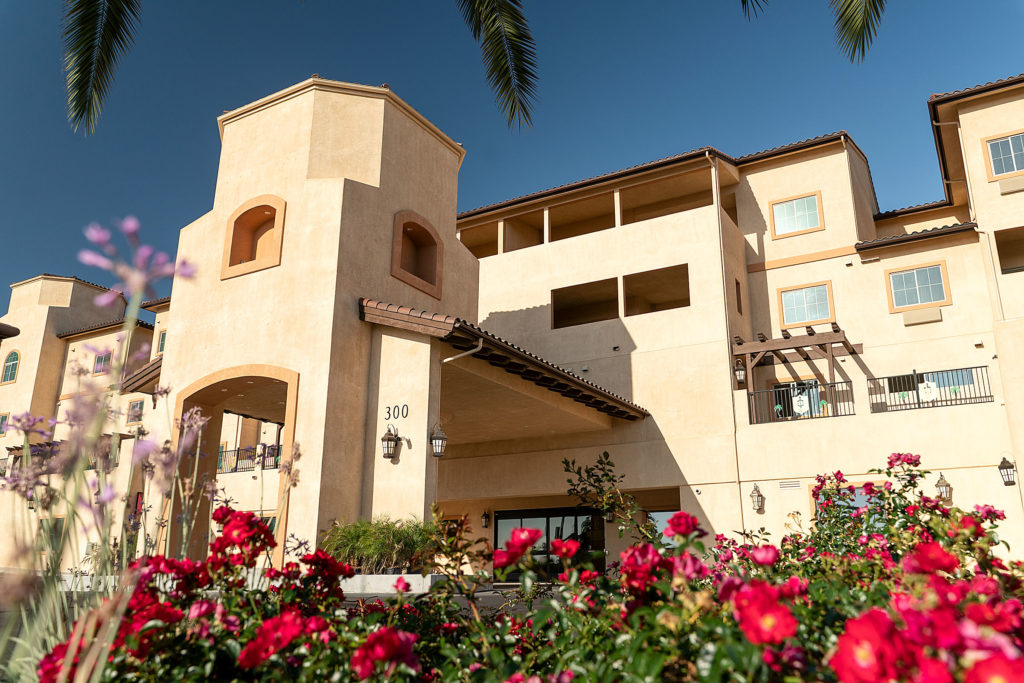
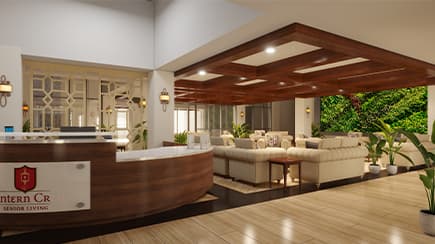
Memory care is a specialized type of assisted living which supports the changing needs of those with mild cognitive impairment as well as those with more advanced cognitive issues, such as Alzheimer’s disease or dementia.
If your loved one suffers from cognitive impairment, or is in need of a skilled nursing facility, Lantern Crest, situated in East San Diego, Ca can help supports the transition between independent living to Alzheimer-specific care.
Among our assisted living communities, is the Ridge, which houses Lantern Crest’s dedicated dementia care facility. The Ridge is just one of our many communities focused on providing excellence in senior living. We offer a safe, welcoming environment staffed by caregivers who provide stellar care to all residents.
If you have a growing concern around a family member or loved one with memory support needs, we’ll review how our dementia care programs can help.
How Memory Care Facilities Can Help With Alzheimer's Disease
We offer a wide range of benefits for those with memory support needs. From social opportunities and specialized engagement, the Ridge’s structured environment enhances quality of life for seniors with memory loss.
Memory care at The Ridge in San Diego is carefully designed for residents with Alzheimer’s disease or other forms of dementia. Our intuitive and compassionate staff understand the importance of taking the time to learn about each resident and their unique needs. Each resident receives a comprehensive care plan which is individually tailored to preserve our residents dignity as well as their physical, emotional, and spiritual well-being.
Alongside stellar care, additional benefits include:
Customized Care
Our specialists understand that this kind of support isn’t “one-size-fits all.” We tailor each level of care to accommodate residents’ personal needs throughout their stay with us. Whether memory support is needed for the beginning, mid, or end stages, our staff understands that as residents’ needs increase, so does their care.
Specially Designed Communities
Creating a strong facility and offering a home which prioritizes both patient security as well as curating a welcoming environment, is the priority of memory support services. Our facilities allow residents to explore their community and outdoor spaces safely alongside a staff of trained caregivers. Licensed nurses are typically scheduled on-site 24 hours a day, 7 days a week.
At the Ridge, each resident has the choice between a bright studio or one bedroom apartment, both complete with their own private bathrooms as well as weekly housekeeping, linen, and a personal laundry service.

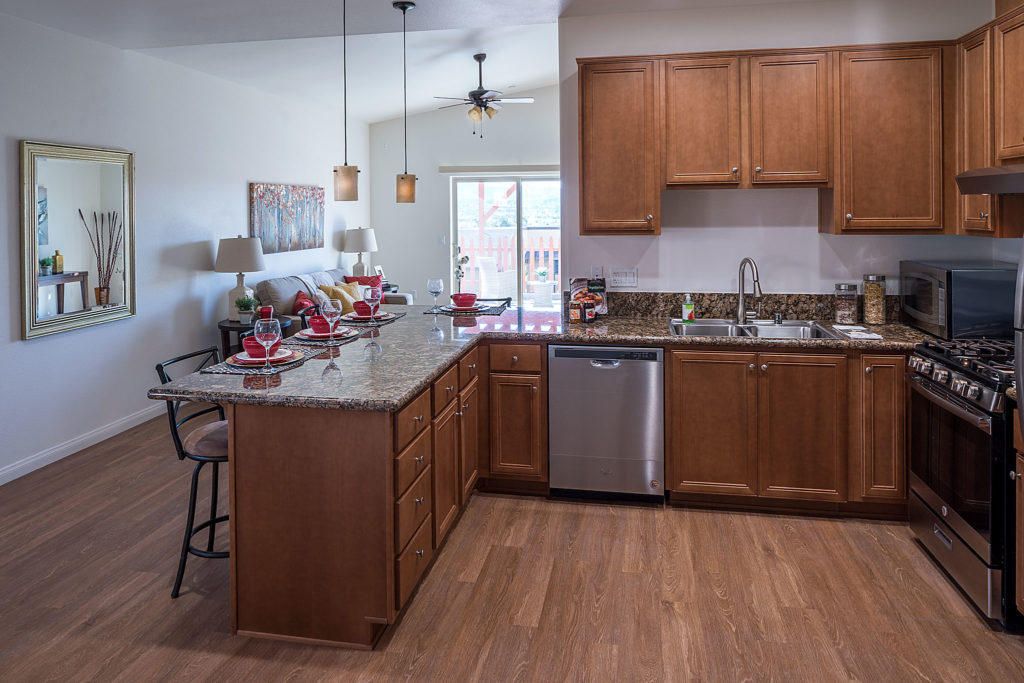
Focused Programs
At the Ridge, our team has developed programs which are designed to engage residents at every stage of cognitive ability, while also promoting their self-esteem, restoring feelings of usefulness and increasing their ability to celebrate life in their own special way. Memory care blends a variety of activities, including outings to help engage residents in local points of interest, while special social events involving families and friends help create a sense of ease, connection and comfort.
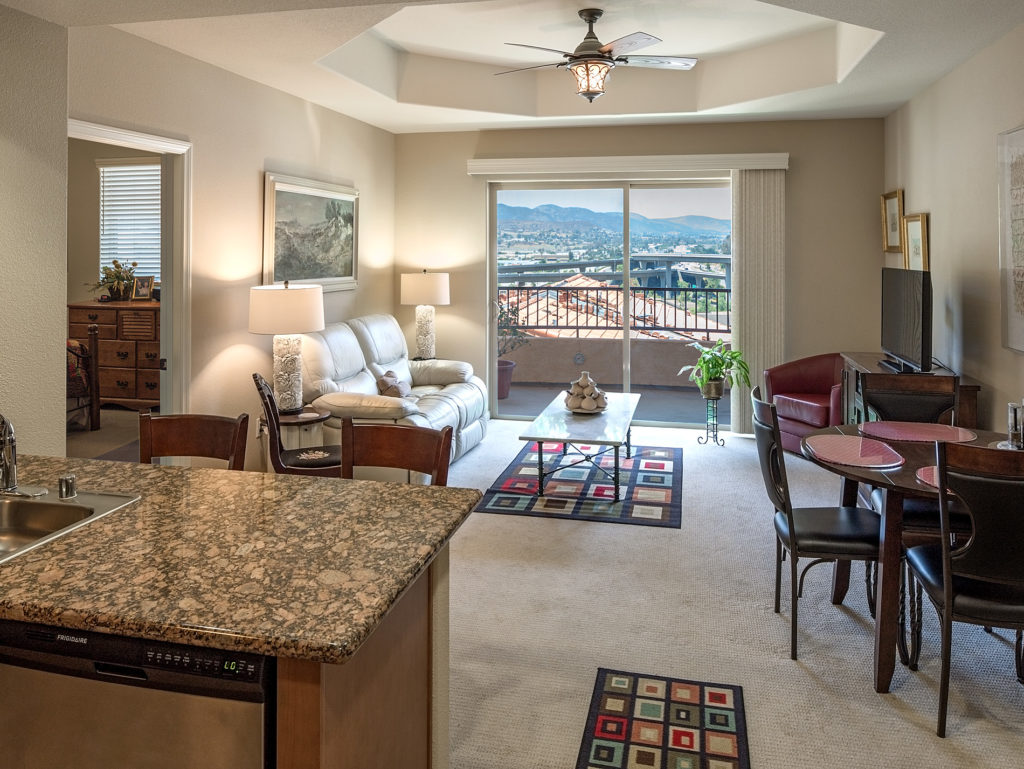
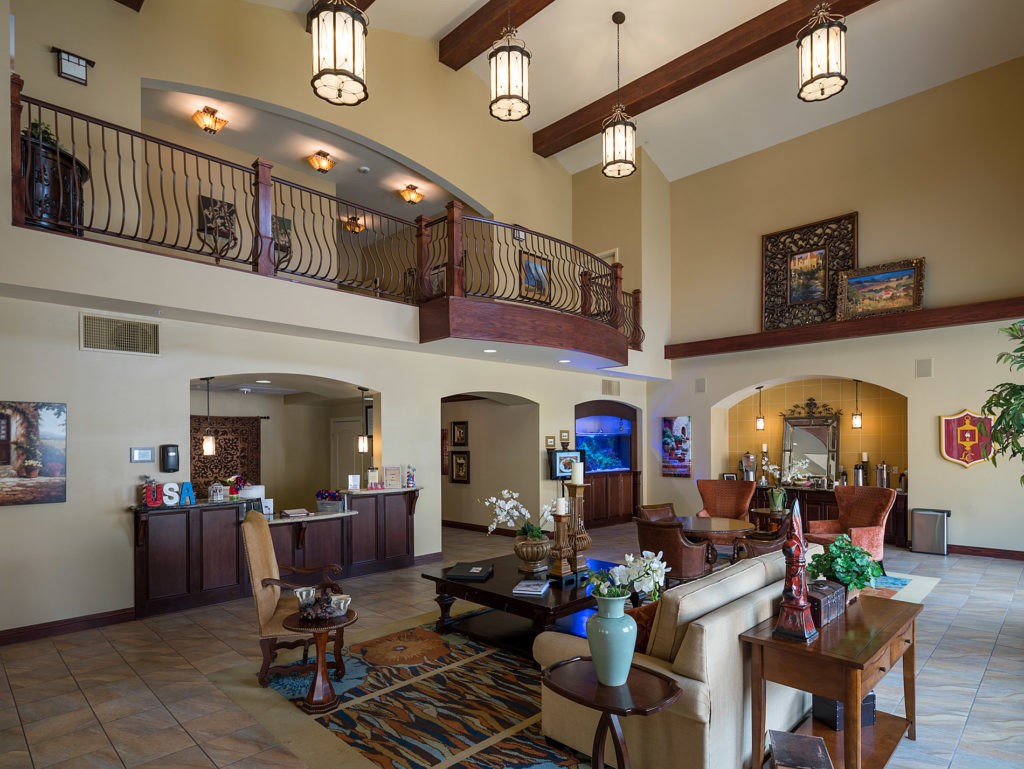
Specialized Amenities
Like many memory care communities, we offer quiet spaces which include relaxation rooms, libraries, and areas for arts and crafts where we host fun, engaging memory-stimulating activities and events.
Highly Trained Staff
Access to a well-trained, knowledgeable and caring staff helps ease concerned loved ones who are comforted knowing their loved ones are being well taken care of inside communities which provide 24/7 care with staff and a licensed nurse available around the clock.
As a result, we often see that residents with memory issues see:
Increased focus. Because the perimeters are secured, the residents enjoy the freedom to move about, and to take part in both indoor and outdoor activities, which helps decrease agitation. Activity-based programs also help to decrease wandering by redirecting residents’ attention and interest into positive outlets.
Reduced medication. As routines are established, self-esteem improves and many times medications can be reduced or eliminated.
Better overall wellbeing. Both the social setting as well as the routine of meal time helps increase the enjoyment around eating, and intake often improves. Our providers understand the holistic needs of residents, which includes regularly meeting dietary and hydration needs.
Additionally, residents typically sleep better and develop healthier patterns of rest, while toileting routines and better-established habits (with the assistance of staff) helps reduce incontinence.
Does Memory Support Make a Difference?
The mission of memory care is to improve the living conditions and to bring fulfillment and purpose to everyday living. Effective memory support programs help accomplish this by:
Prioritizing safety. Creating a strong facility and patient security is the first priority of specialized assisted living. Memory support facilities allow residents to explore their community and outdoor spaces safely alongside a staff of trained caregivers.
Providing a sense of fun. Outings help engage residents in local points of interest, while special social events involving families and friends help create a sense of ease, connection and comfort.
Establishing familiarity. Routines which focus resident’s energies on productive activities help create a sense of familiarity and can help reduce the reliance on behavior medication.
Celebrating and supporting self-esteem. A balanced menu of quiet, memory-exercising activities, creative craft workshops and invigorating play are tailored to each resident, stimulating large motor skills and helping ensure they are able to function at the highest level possible and enhancing self-esteem. These types of interactive activities help provide a stronger sense of purpose.
Building community. Family, friends and a sense of belonging is an important part of overall well being, allowing residents and their family members to be included in events, activities, and day-to-day communication and to celebrate life in their own special way.
Leveraging expertise. Access to a well-trained, knowledgeable and caring staff helps family members remain at ease knowing their loved ones are being well taken care of.
What Type of Training Do Memory Care Providers Have?
Our providers are trained according to the requirements established by the state, along with extensive, additional, ongoing training on Alzheimer’s disease and dementia so they are better able to assist residents in different stages.
Memory care specialists understand a wide variety of therapeutic approaches and how they work for different residents. They also understand how necessary it is to engage residents in different activities throughout the day.
Because the experience with dementia and Alzheimers is unique to each person, our providers understand that ongoing, communication, strategy and team work in order to provide the best possible support and life for all residents.

Helping Family Members Make The Decision
Deciding that the everyday care and support of a family member or loved one may require the full-time expertise of a specialty care community is a difficult and complex decision which involves many factors.
One of the most important things you can do when having this type of conversation is to listen. It’s important to listen with empathy instead of listening to respond. While it’s natural to formulate our own ideas, responses or counter arguments while another person is talking (especially when there’s an emotional topic at hand), practicing active listening helps bring tension down and encourages everyone to remain present.
Whether first speaking to your network or to the loved one which may need support, try to use the following conversation tactics:
Try to consider each person’s feelings by validating the speaker. Try saying things such as “I hear what you’re saying” or “I understand how difficult this situation feels.”
You may even try to paraphrase or ask participants for clarification. This may sound something like, “It sounds like you may feel…” “I think what you’re saying is that….” or “Do I understand correctly that you feel as if…”
Summarizing important talking points while also asking questions can help each person feel as if they are being heard and that you are genuinely interested in their own perspective, ideas or concerns.
How to Start The Transition Process
Once you’ve talked to your loved one and the other decision makers in the family, you may wonder what the next steps are. Here’s few steps to help jumpstart the next part of the process:
Step 1. Assess their future needs. First and foremost, it’s critical to establish a realistic and factual picture of your loved one’s current and future memory-loss needs. At-home arrangements can be workable for a period of time, but may not remain effective as the disease progresses.
Step 2. Talk with other decision makers. It’s important that all the decision makers and stakeholders are included and are willing to have an open discussion about the best path for a loved one with memory loss. It’s necessary that everyone participating in the care plan is on board and agrees that well-being and quality care are the ultimate goals.
Step 3. Assess their current caretakers. What does their current care look like, if any? Do you feel like they are receiving adequate and compassionate attention for their unique needs?
When evaluating the current care system in place, make sure to consider the following questions:
Is it safe?
Are the caregivers capable and competent?
What is the back-up plan?
Is it the best scenario for all involved?
What does it cost?

About Lantern Crest Senior Living
Since 2013 Lantern Crest has been providing the best in independent, assisted and memory care in San Diego. We offer spacious, luxurious living spaces, 24-hour care, award-winning dining experiences, as well as a wide range of wellness, entertainment, and concierge services.
We continue to grow and develop based on the needs and desires of our residents and seek to provide transparency into the actual costs and requirements for our senior living residents. We believe senior living should be focused on continual fulfillment and growth, and we believe there’s no cap to learning and enjoyment.

